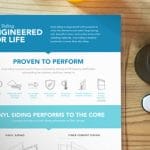Here’s a great article written by Vicki Payne, a nationally recognized designer, home improvement, gardening and decorating expert. Each week, for over 15 years, millions of viewers both nationally and internationally have tuned in to watch her popular television show, For Your Home.
Is Your Home Ready For Your Golden Years?
By Vicki Payne

Every day, and for the next 15 years, 10,000 or so baby boomers—Americans born between 1946 and 1964—turn 65 years old. Are you one of them? If so, one of your biggest decisions may be where to live.
On one hand, you may want something completely new. As work and family obligations lessen, maybe you’ll downsize to a home with lower taxes, less traffic, and better weather. On the other hand, you could stay where you are, where you have friends and family and a familiar lifestyle. Turns out, the latter is more likely—AARP says 71 percent of 50- to 64-year-olds and 87 percent of people age 65+ want to stay in their current residences.
This wasn’t always the case. Before the recession, many baby boomers moved away from densely populated cities, but between 2008 and 2012, just six percent of those aged 60 and older moved, likely due to plunging housing prices and lack of employment opportunities. But as the economy improves, this is projected to change.
The National Association of Realtors predicts baby boomer buying activity will pick up in metro areas with a “dynamic local economy, adequate housing supply, and a lower cost of living as some delay retirement and remain participants in the labor market.”
That said, no matter where you’ll call home, your quality of life will hinge on how well-outfitted your home is to accommodate changing needs in the often overlapping areas of affordability, health, safety, comfort, and convenience.
Planning ahead
If you’re lucky enough to own your home free and clear, congratulations. And if you’re still working on it, you’re probably building a nice nest egg, even if your home’s value took a hit in the recession. A recent Merrill Lynch study says the average home equity among homeowners age 65+ is more than $200,000 and age 55 to 64 is about $195,000— presenting peace of mind and options for downsizing, minor remodeling, or major renovations. After all, you may feel great now, but you’ll need to plan for reduced eyesight, poorer balance, diminished flexibility, and less energy for upkeep.
Here are some suggestions to make it easier for you to age-in-place: On the inside of your home, popular upgrades include no-slip floors, carpet instead of throw rugs, a full bedroom and bath on the first floor, bathrooms with grab bars and curb-less tiled showers, shower benches and removable shower heads that can be used while seated, upgraded lighting, radiant floor heating, wider doors and hallways, rocker switches, levers instead of knobs, drawers instead of cabinets, induction ranges that can boil water in seconds and the surface remains cool to the touch, and higher electrical outlets.
On the outside, automatic lights and well-trimmed shrubs, no- or low-step entryways, and wide, textured, non-slip sidewalks can improve safety. Your cladding should be both durable and low maintenance — today’s vinyl siding is a great investment; these products are certified for quality, performance, and color retention. Never having to paint or caulk again is a real time and money saver. And who doesn’t want peace of mind knowing that vinyl and other polymeric siding (shakes) cannot absorb water, so the cladding won’t rot, degrade, pit, or peel. Vinyl siding is even available with an insulated backing permanently adhered, which prevents thermal bridging through the studs on the exterior walls. Saving energy reduces utility bills, another plus for when we retire to a fixed income.
Expert help is available
The NAHB Remodelers of the National Association of Home Builders (NAHB) in collaboration with Home Innovation Research Labs, NAHB 50+ Housing Council, and AARP developed the Certified Aging-In-Place Specialist (CAPS) program to work with boomers who will soon require home modifications. While most CAPS professionals are remodelers, an increasing number are general contractors, designers, architects and health care professionals.


